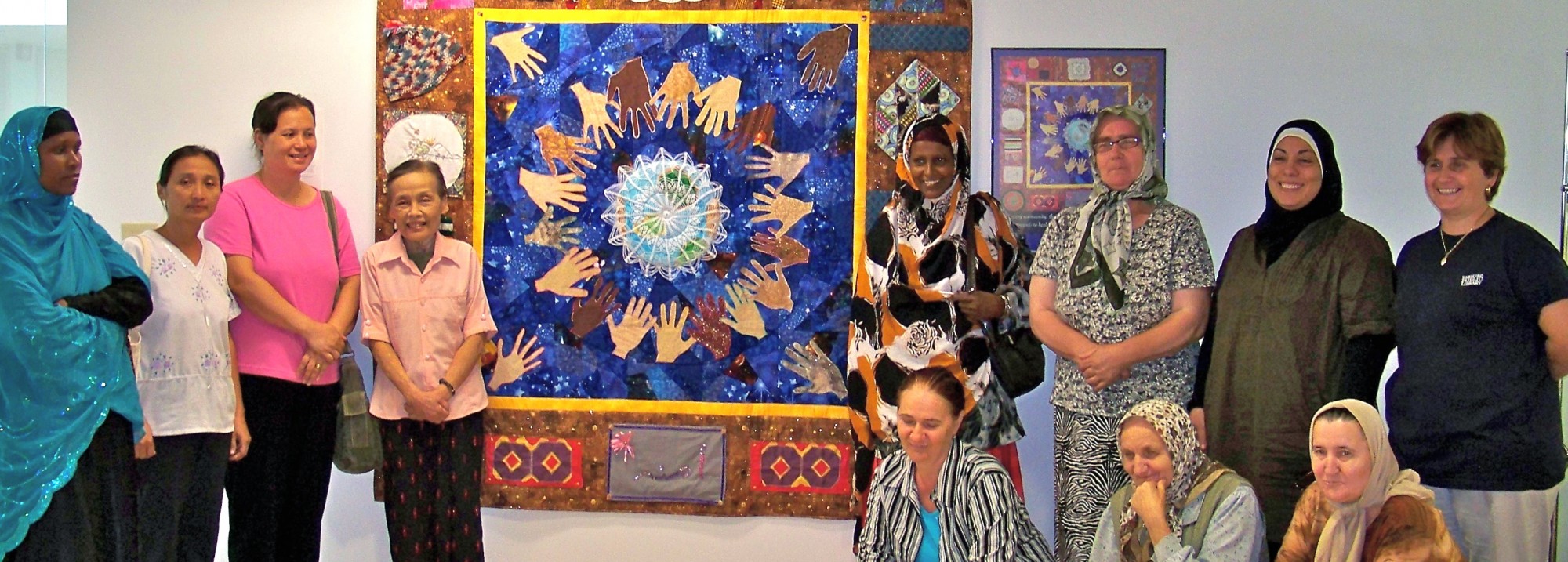Julia and I had been working together for a few weeks and yet, as sweet and polite as she and her family always were to me, I could not help but feel like the meetings were obligatory for her and not much more than homework help. After all that she has been through in her life as a refugee, I wanted our Wednesday nights to be an opportunity for me to make things easier for her in the US and I wanted to be her friend. In this attempt, I regularly offered an open invitation for Julia to come visit me at school when leaving, yet never received much response from her other than a shy ‘ok, maybe.’ So when, a couple weeks later, she asked me what I was doing the following Friday, I was really excited and hopeful she was becoming more comfortable with me. Having her meet me posed a few difficulties, since she does not have a cell phone or know her way around campus, but we ended up finding each other eventually. We walked around campus and talked about what her school is like, as well as daily life. I did not realize until near the end of our visit that she was wearing (on one of the coldest days yet) only a t-‐shirt and a thin sweatshirt. I made sure we spent the rest of the time inside after she would not accept borrowing one of my coats. This was really interesting to me because, as compared to how I was raised to always politely speak up when I was uncomfortable (“squeaky wheel gets the grease,” my mom would tell me), Julia was being polite in her own way by dealing with the cold silently. I made a mental note then to, in the future, subtly make sure that she is comfortable without making her feel as if she is being rude. This visit brought us closer in multiple ways that I would later notice in our meetings. First, I think it really helped for her to come and see where I am living (a tiny dorm) so the relationship feels more equal than me just always coming into her space. It also allowed me to understand Julia and her culture better, allowing me to adjust how I tutor. I always make sure that she understands the material we are covering and is not just saying so out of politeness. Serena S.
Tag Archives: Cultural Brokers
The Work of a “Cultural Broker” Is Never Done
As part of the Global Hartford Migration Lab I spent time with Jody Putnam, a “cultural broker” in Hartford who helps refugees in any way they need. This week I went with Jody to visit three Burmese refugee families in Hartford. The first family was a 50-year-old woman named L.M. who had two children. She lived in newly-built subsidized housing with rent determined by your income—a luxury not all refugees are given. This woman was temporarily disabled and therefore could not work and had no income. Jody was paying her a visit because her food stamps had been discontinued and not only did she not have any way of buying food, but she was unsure of how the system worked to renew her food stamps. Jody explained to me that the process of renewing food stamps was not overly complicated, but very time consuming due to budget deficits in the state government. So, Jody considered this visit a relationship-building experience. In this time I got to know L. M. and hear about her recent citizenship ceremony, which she was extremely excited and proud of, about her children, and about her upcoming back surgery.
In the background, Jody waited on hold for over an hour to speak with someone about L. M.’s food stamps. When they finally connected, Jody was able to represent L. M. for the short interview to renew her food stamps—an easy effort yet a victory for L. M. . There were many moments like this throughout the day. The last family we visited needed Jody to look at a letter they received from the hospital about recent x-rays the daughter had gotten. The letter simply said that their insurance would cover all medical expenses. However, the family could not understand the letter and just saw the large sum of money. It only took Jody and me five minutes to clear this up with the family. It was an easy task for us, but a stressful and confusing moment in these refugees’ lives. When I returned back to campus and continued with my day, it was a staggering feeling. When living on Trinity’s campus, right in the center of Hartford, it is difficult to realize that people are living so drastically different than us within our community, just blocks away. And that, although we live in the same communities, the obstacles we face, such as language, economic, and cultural barriers, vary so much. Chloe S.
